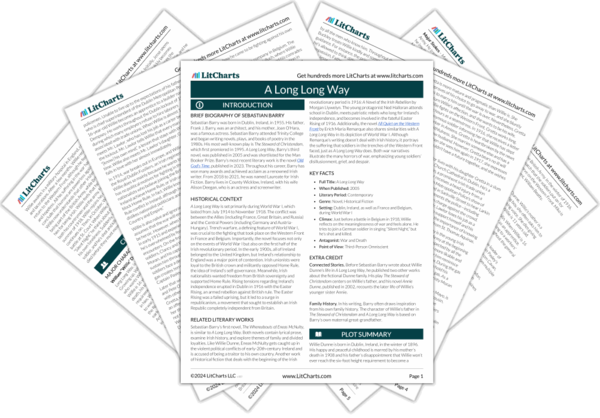Willie draws comfort, joy, and strength from singing. In fact, it heals and enlivens him in a way that actual nourishment can’t. Willie’s comrades are similarly bolstered by song, showing that they all share a common faith in music to help get them through difficult times. In this way, the soldiers display great resilience. Yet the war has taken a definite toll on them. Emotionally traumatized, Willie feels as though his grief is a growing sickness inside him.
